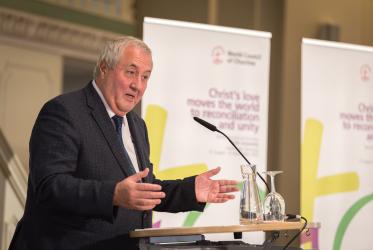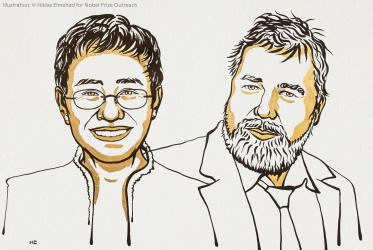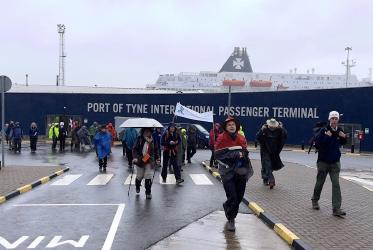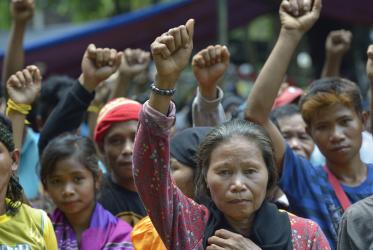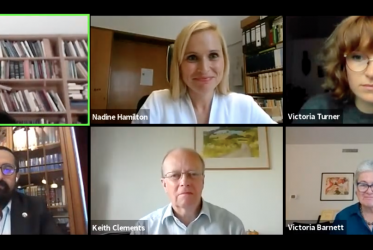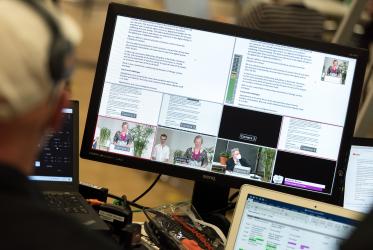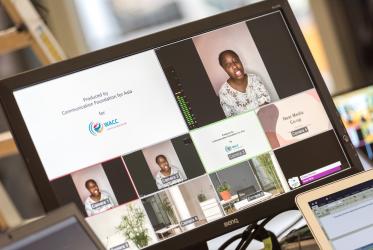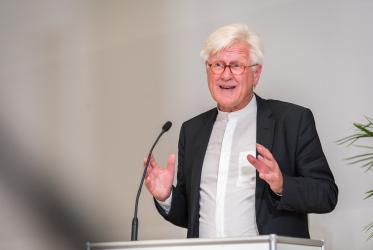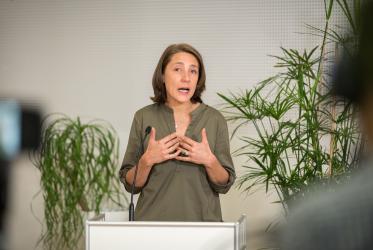Displaying 161 - 180 of 486
27 October 2021
WCC mourns passing of Rev. Dr Jose Pepito Manansala Cunanan
18 October 2021
WCC consultation reflects on future of health ministry
15 October 2021
WCC congratulates 2021 Nobel Peace Prize laureates
14 October 2021
Dr Abuom reflects on women of faith as healers of creation
05 October 2021
Youth “meet and greet” yields ideas to tackle digital injustice
20 September 2021
Digital communicators weigh a future with “profound values at stake”
16 September 2021
In the current media landscape, who controls our public space?
14 September 2021
WCC 11th Assembly host city celebrates “Christusfest”
10 September 2021



